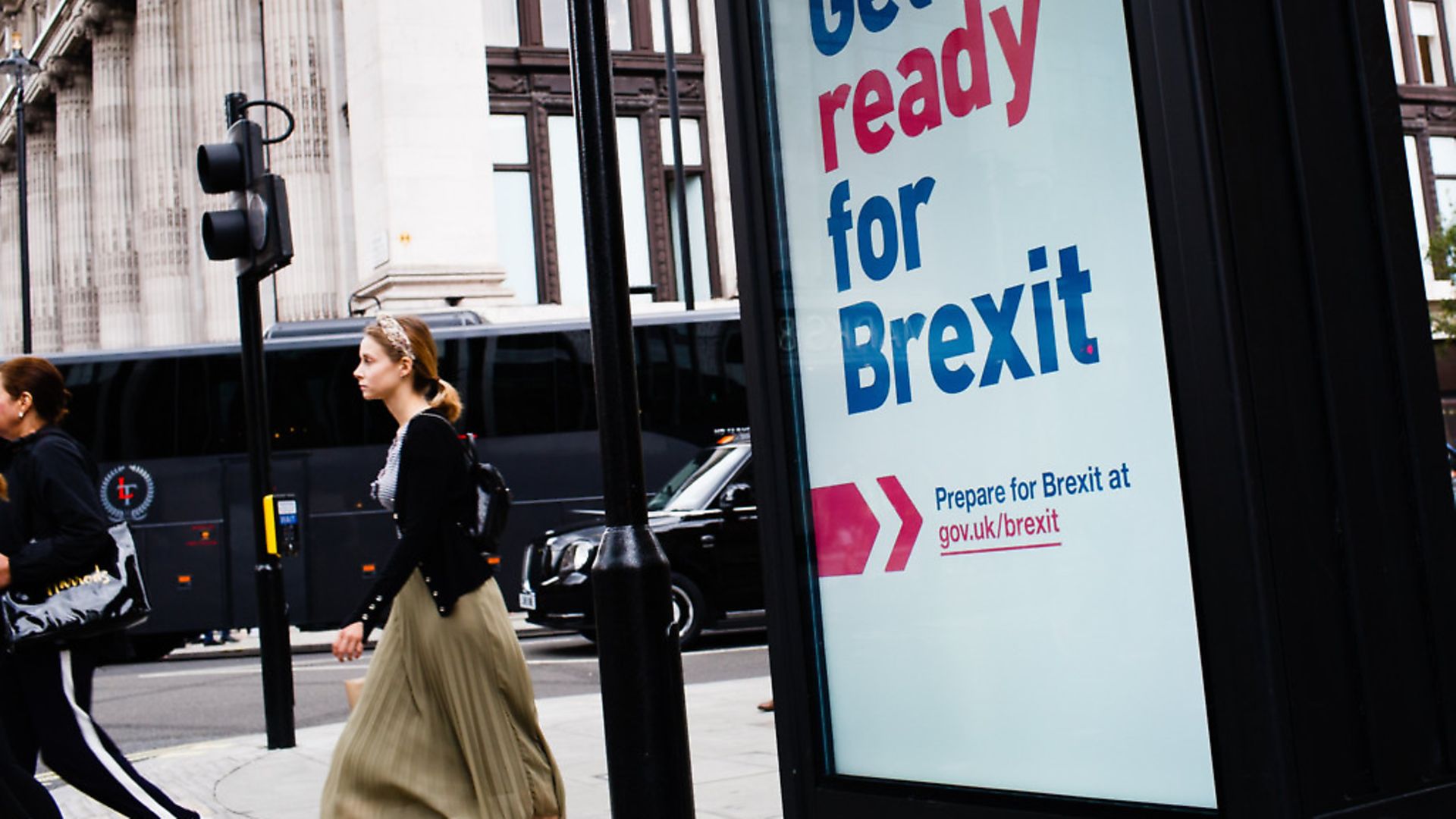
Britain’s cultural industries are thriving but Brexit could have a stifling effect, warns Patrick McCrae
It is easy to assume that visual art, if not politics, is in rude health in the United Kingdom when you see Banksy’s Devolved Parliament, depicting a House of Commons chamber occupied by chimpanzees instead of politicians, selling for a record £9.9 million.
Milestones such as this serve as a reminder that art is not only a multi-billion-pound global industry, it is part of our national identity.
How central to our identity it will be in the future is still to be determined. Art is rightly considered to be an investment that is more resistant to political upheaval than other commodities, but the impact of Brexit will be felt keenly across every industry, and we are approaching a fork in the road that will define the future of the arts in the UK.
The creative industries account for 5.2% of the UK economy. In 2017 they contributed £101.5 billion to Gross Value Added (GVA), a greater amount than the automotive, aerospace, life sciences, oil and gas industries combined. This is a part of the UK economy that is thriving, and it is paramount that its momentum is not checked. Yet the creative industries are set to lose more than £40m per year in EU funding and this comes at a difficult moment for the industry; Arts Council England has been forced to cut its budget by £156m from 2018-22.
This funding gap has been widely reported, but one potentially devastating aspect of the UK’s exit from the European Union that we’re not hearing enough about is how the proposed new immigration thresholds will disproportionately penalise European citizens working in the arts. The Home Office has to date floated two options: A £30,000 minimum annual salary threshold, and, more recently, a points-based immigration system like that in Australia.
Both will have a significant impact on creatives, many of whom work as freelancers or on a commission basis. According to the Creative Industries Federation, one in nine UK businesses fall within the creative industries, and these businesses employ more than two million people. More than a third of these workers are freelancers, compared to an average 15% across other sectors.
Of the two million people employed by creative industries businesses, 12.7% are international workers and 55% of these are EU nationals. For those creatives who are self-employed, invoices and payment can be erratic and don’t fit with the financial year.
One solution would be to treat artists as micro-entrepreneurs and give them special dispensation. Diversity, free exchange of ideas and freedom of movement are invaluable to the creative industries. They encourage innovation, and progress, and we will lose out both economically and culturally if we curb that spirit.
London is at risk of diminishing its status as one of the world’s great creative capitals: the living costs associated with England’s capital are already driving artists away to cheaper European cities. If a no-deal Brexit further drives up the cost of living, we are at risk of creating a perfect storm whereby artists have no choice but to migrate elsewhere.
Dynamism is the essence of the creative industries: 95% employ fewer than 10 people, and much of the work in the sector is project-based and reliant on freelancers. The immigration systems that the government puts in place need to reflect this, to protect both businesses who need talented creatives, and the creatives themselves. Otherwise we will have to confront the consequences of a Brexit brain drain.
In my London-based art consultancy business, around 15% of our team and 40% of the artists we represent are not British. They are vital for the functioning of our business and I am sure other CEOs in the arts sector are in a similar precarious position.
But amid these potential dangers there is an opportunity too. As an industry, the arts does not do enough to make itself sustainable and is too often in thrall to the wealth of a small elite of benefactors. Fundamentally, we need to change the way the arts are funded in the UK. Indeed, if we Brexit ends up being particularly damaging Brexit, innovation will be a necessity if the arts are to continue to prosper.
The first step to this is an attitude change. There remains almost a sense of embarrassment within the art world when talking about money. I founded my business to bridge the divide between the corporate and art worlds.
Businesses have a responsibility to ensure that creatives are paid fairly for their time and their work. Equally, we need to be encouraging creatives to be financially literate and understand how to market their work rather than regarding commercial success as a sell-out.
However, a creative brain drain could dramatically hinder progress the industry is making. The onus is now on the government to ensure a clear system is in place which does not prevent or discourage emerging talent from moving to the UK, and on the creative industries to establish a sustainable model that can withstand the storm clouds ahead.
Patrick McCrae is CEO of ARTIQ, a leading art rental and consultancy business









